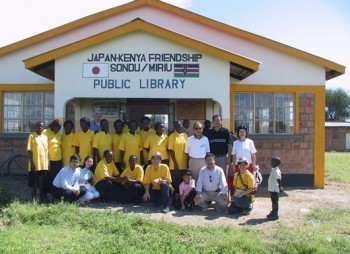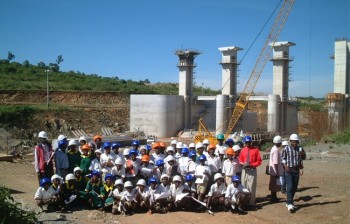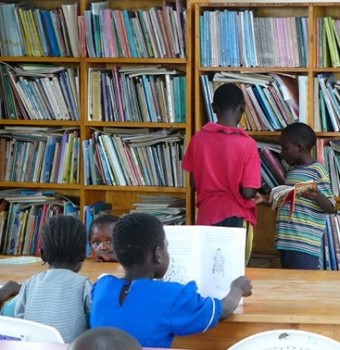Mecenat Activities
NIPPON KOEI CO., LTD
- Purpose:Nurturing of Next Generation, International Relations
- Other Purpose:
- Genre:Literature
The inspiration from this project came from seeing a locked bookcase. Nippon Koei had been contracted to supervise a hydropower project in the Sondu/Miriu area of Kenya, and had been involved on-site since 1997. In 2000, Mr. Sakoda, Nippon Koei’s Project Engineer, was approached by representatives of a local self-help group, the Hera Women Group (hera means “love”), seeking support for the group’s activities. When Sakoda discovered that the local school kept the books and textbooks in its library under lock and key, and that the children did not have free access to them, he suggested opening a library. He asked people in the company to help with funding for the library and for donations of English-language books, and also persuaded the power company running the hydroelectric project to provide space for the library in one of its construction buildings. This led to the opening of the Sondu/Miriu Public Library in 2001.
Twelve members of the Hera Women Group took on the management of the library, and support was provided by Nippon Koei and the Library Support Group. This group was headed by Sakoda, and included Nippon Koei staff, and individual Japanese, British, and Kenyan citizens. Books and funds collected by the group were sent to Kenya each year, and by 2009, the library had a collection of 5,000 books. That year, there was a terrible storm that destroyed half the books, but donations continued, and the collection has now recovered to 4,000 books. In 2004, with the support group’s assistance, the library was able to buy land and construct a new library, moving into the new facility. Since then, the library has been able to employ a librarian, provide additional services such as drawing/painting classes, and run a writing contest. These have been achieved through ideas and managementexpertise provided, and a great deal of effort goes into improving the quality of the library.
The number of users grows each year, and has already reached 27,000. A single individual’s idea has grown, motivating a large number of people, and is continuing to help a culture of reading take root in Kenya.




